Week-to-Week: The Dream of a Gay Mr. Christmas is Dead
But given the realities of Hallmark's competition series, was it ever really alive?
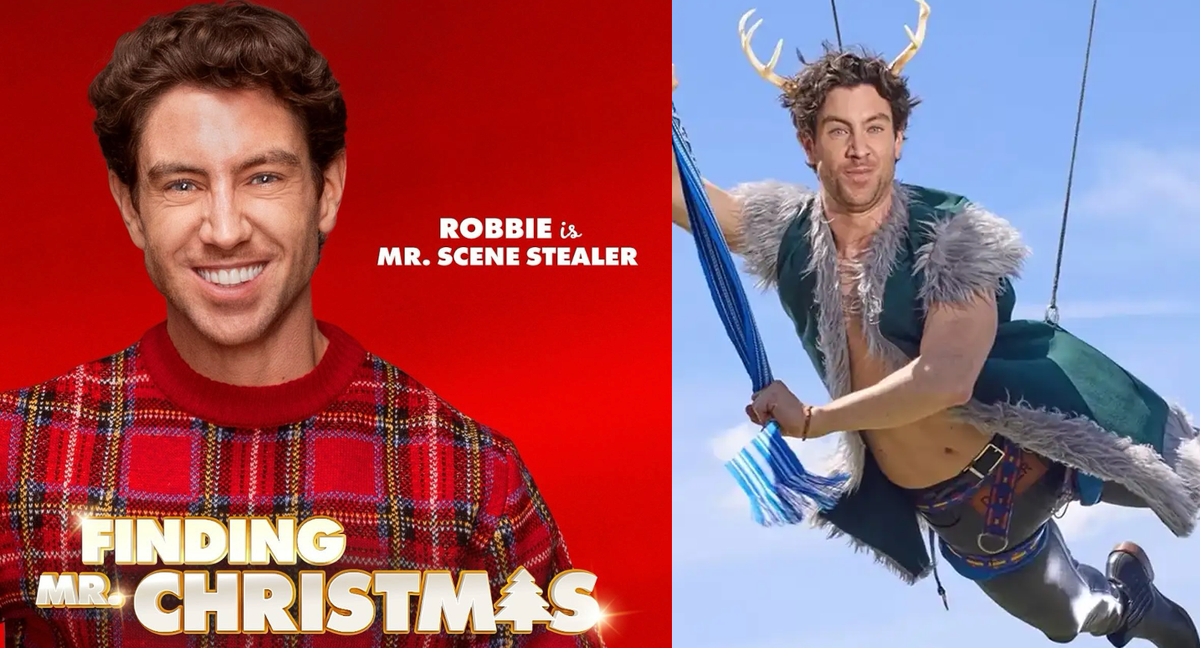
Week-to-Week is the mostly weekly newsletter of Episodic Medium written by me, Myles McNutt, covering television and the media industries. To receive future newsletters and learn about the shows we're covering weekly for paid subscribers, join our mailing list.
Launched last year as a Hallmark+ exclusive, Finding Mr. Christmas represents a logical extension of the Hallmark Channel brand. The reality competition series brought ten men together to battle it out for a coveted prize: a starring role in a Hallmark Christmas movie. With tongue firmly in cheek, the Jonathan Bennett-hosted show reveled in the tropes of the genre, putting the men through the paces of shirtless puppy photo shoots and the like.
Returning for a second season, Finding Mr. Christmas moved to the linear channel, extending each weekend of the Hallmark Countdown to Christmas into Monday evenings. This week marked the midway point of the competition, with the fifth contestant sent “home for the holidays.” It was a result that concluded a narrative I’ve been following throughout the season, as a contestant who challenged the Hallmark Leading Man archetype saw his journey come to its conclusion without ever having really addressed the elephant in the room.
Robbie Simpson is not Finding Mr. Christmas’ first openly gay contestant, which makes sense given that Bennett—who also serves as executive producer—is himself openly gay and has been playing queer roles in Hallmark films since 2020. In season one, Daxton Bloomquist was among the prospective Mr. Christmases, but he withdrew in the third episode for medical reasons, meaning his story never got to play out. With Robbie, the show has more directly positioned his queerness within the discourse of the show, both in terms of his edit and in the show’s promotion, like this interview with GLAAD.
Unlike Daxton, who was only safe in the weeks leading up to his exit, Robbie was also among the show’s strongest competitors. He won multiple challenges, including last week’s where the task was impressing Hallmark superfans during a Q&A after a talent competition. It was a culmination of an emotional narrative that did hit some Hallmark-friendly tropes—his relationship with his late mother, his fandom for Hallmark films—but also explored his place as a queer man in a competition dominated by a particular vision of masculinity. The show is rife with former athletes looking for a career change, and in a slingshot challenge earlier in the season Robbie consciously resists taking a more physical role given his lack of athletic experience. Does this story necessarily make sense when the “physical” role is pulling back a slingshot? No, but it positioned Robbie’s relationship with masculinity as an ongoing story that would eventually need to be resolved.
As a reality television narrative independent of context, Robbie’s story comes to an emotional conclusion. After his team is flagged for a lack of chemistry in an acting challenge, with Robbie in particular criticized for overacting, he becomes the fifth player eliminated. In a teary sendoff, Bennett is clearly overwhelmed—his voice cracks before he can even finish saying Robbie’s name. After Robbie says his goal was to make him proud, Bennett specifically notes that he made both him and the “community” proud, while Robbie acknowledges that his connection with the other guys in the competition surprised him. The exit reiterates Robbie’s place in this narrative, as the gay man who leaves having found a camaraderie with his straight counterparts.
However, his exit comes before the show had a chance to explore what exactly Robbie becoming part of the Hallmark family would mean. In the various acting challenges, Robbie was primarily playing straight roles, but the show never explored what it meant for him to be “passing” as straight in this context. Robbie’s struggle to fit in with the sports bros—there’s a great scene where they’re all throwing a football around talking about their athletic pasts and he’s just standing off to the side—is a story Finding Mr. Christmas is willing to tell, but we never learn what Robbie’s vision for his Hallmark future looks like. Does he want to be playing ski patrollers and ranch hands wooing women? Weirdly enough, the challenge he went out on was the first where he wasn’t playing a romantic role, and thus the first one where he could ostensibly be playing a gay character. And yet the show never lets him talk about that opportunity, and there’s no sense that he consciously played the character as queer within the bounds of the sibling relationship being depicted.
This would be fine, except that the pre-season press cycle that Bennett and Robbie went on was consciously framing his presence as a form of inclusion, and thus it’s odd the show never explores whether the story that Finding Mr. Christmas tells would be compatible with the actual end goal of the competition: a starring role in a Hallmark Christmas movie. Bennett has been front and center in telling queer narratives on the channel, but they’ve still only released one single non-ensemble gay male Christmas movie: 2022’s The Holiday Sitter (there’s a lesbian adoption movie, A Christmas Baby, airing this December). Since then, Bennett’s roles have been in films about entire families, like this year’s A Keller Christmas Vacation where he, Eden Sher, and Brandon Routh play siblings on a holiday cruise in Europe with their parents. Given the connection with Bennett, I would presume that Robbie sees him as his model for the future, but we never really find out: what kind of leading man does Robbie see himself as, and how would this fit within the reality of what queer roles exist on the channel?
Specifically, how would this fit within the premise of this show, in which the winner is immediately swept into a starring role in a Hallmark Christmas movie airing this year? Presumably, this means that the script for the film would be prepared in advance, and so there would be no option for Robbie to be playing a queer character unless it was consciously designed with a co-lead situation. The same is true for contestants like African-American Marcus or Venezuela-born Angel, who wouldn’t necessarily fit into the “average” Hallmark role written for a white man. Hallmark is more open to diversity than it’s been in the past, but it still tends to silo that diversity within projects exploring specific stories, and the fact that every contestant is theoretically competing for the same role has to be playing some part in producers’ decisions of who stays or goes.
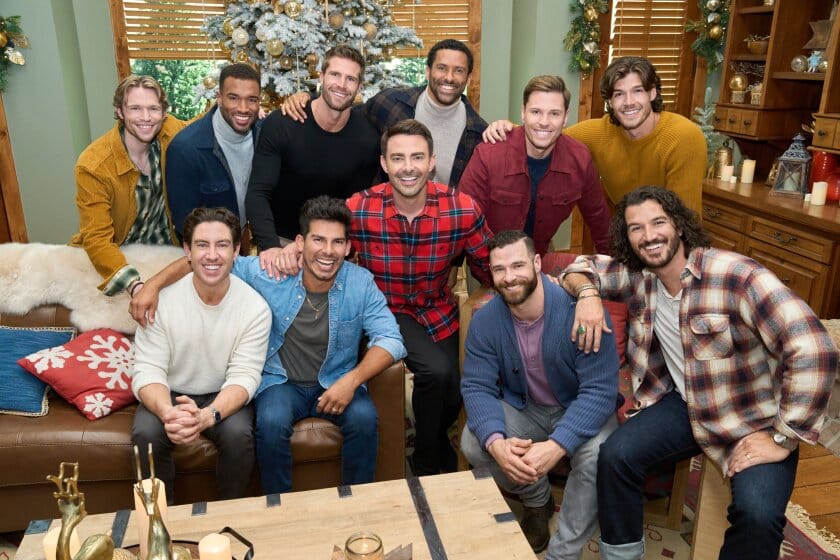
If Robbie had gone deeper into the competition, the show could have explored those realities more directly. As it was, though, the show had plenty of opportunities to have Robbie discuss how he approaches “playing straight” as an actor, and whether that’s something he sees in his future. It’s easy to imagine where his story could have gone if he had made it to next week’s episode—which returns to a romantic scene—or all the way to the finale, which last season involved a “kiss test.” The deeper he got into the competition, the more this story would have moved to the forefront, but the fact it never came up in the edit is conspicuous.
I don’t want to make it seem like Robbie couldn’t complete these challenges, but I do think the nature of the show makes it incredibly difficult to take him seriously playing a straight person. This isn’t a matter of talent (although I do think an outside observer who saw one of his scenes without context might still clock him, if I’m being honest): it’s a matter of a reality show telling a personal story and building a connection between the viewer and Robbie’s queer identity, which makes it incredibly difficult to buy him wooing Alison Sweeney. If winning this competition requires him to pass as straight, which feels like a safe bet, the very inclusion narrative that made his community proud also doomed him. The producers might never say so specifically, but the choice to eliminate him on a challenge where he did not actively screw up says something about their belief in his ability to slip into the stereotypical Hallmark leading role, and his queerness cannot be separated from that decision even if he could act his way out of it.
To be clear, the inclusion narrative is not without value. Especially now that it’s on the linear network, creating a space where a queer man can represent the Hallmark brand is a “win” for the diversity of the historically conservative channel. But Finding Mr. Christmas is technically about more than just being a part of a competition, and Robbie’s premature exit robs the show of confronting the difficult reality its inclusion reflects, and the still tenuous place of queer love stories within the Hallmark brand. Bennett has created a space where he can mentor a new generation of queer Hallmark stars, but that only works if the channel has places for them to go, and if the premise of the show doesn’t confine them to a single role that is going to expect them to play straight. It would be a logistical nightmare to develop multiple projects to serve multiple winners (ala American Idol's winner songs), but it would at least acknowledge that it feels wrong for a reality show that wants to be about being yourself to narrow itself to a singular vision of Mr. Christmas that everyone must conform to.
Episodic Observations
- I enjoyed reading through the Reddit posts about this show, as there are some strong opinions. I was reminded that when I watched last season’s (pretty terrible) movie, I found similar discourse disagreeing with the producers’ choices in that season as well.
- I watched A Keller Christmas Vacation as I was thinking about this newsletter, and it was…fine. It’s clear these ensemble romances—every sibling has their own story—are Hallmark’s preferred form of inclusion, but it effectively guarantees that the queer storyline will take place outside of queer spaces. As I wrote back in 2020 in what became the last post on my blog Cultural Learnings, the ability for a gay narrative to actually explore gay culture is where I would argue true inclusion happens, and burying it within families or vacations naturally moves away from this.
- For the record, I emailed Hallmark about this story when I watched the screener with Robbie’s exit, and received no response. I can never tell when I’m being ignored for not being an actual reporter or when they just don’t want to talk to me for other reasons, but I did try to get some perspective from Robbie and Bennett for the story.
- Because it’s an easy thing to throw on in the background while working and the screeners are all together, I’ve also watched a fair number of Hallmark’s non-gay Christmas movies, and…well, let’s just say that this might not be great for my mental health as far as the Empty Cup Awards are concerned.
- Happy Fake Thanksgiving Week to our American Episodic Medium subscribers (real Thanksgiving was in October, eh). Your gifts will be some bonus coverage from the Fall schedule we announced back in September, including daily reviews of the first batch of Stranger Things season five and weekly coverage of HBO Max’s gay hockey drama Heated Rivalry. As always, first reviews are free for all, but the rest will be exclusively for paid subscribers, who help support the work of all our contributors.
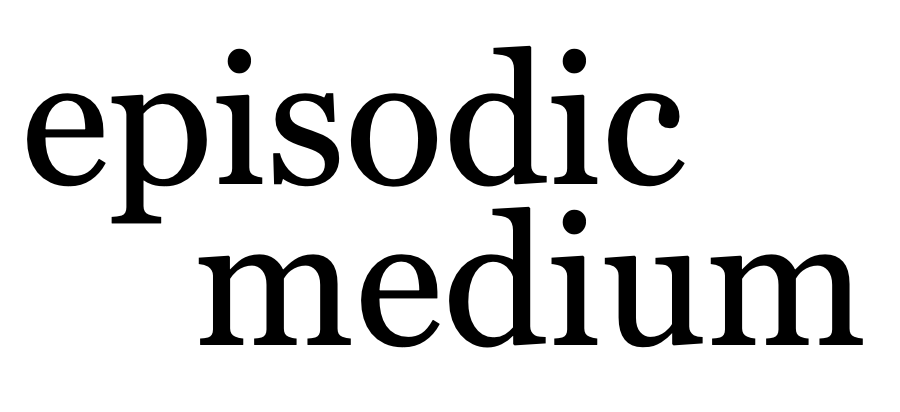
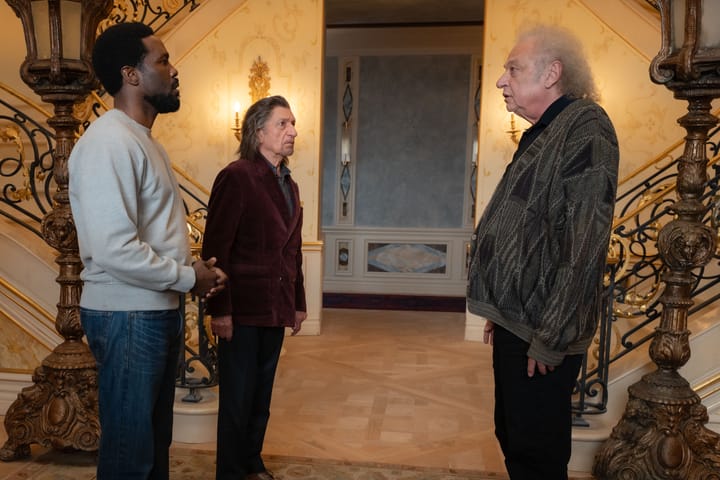
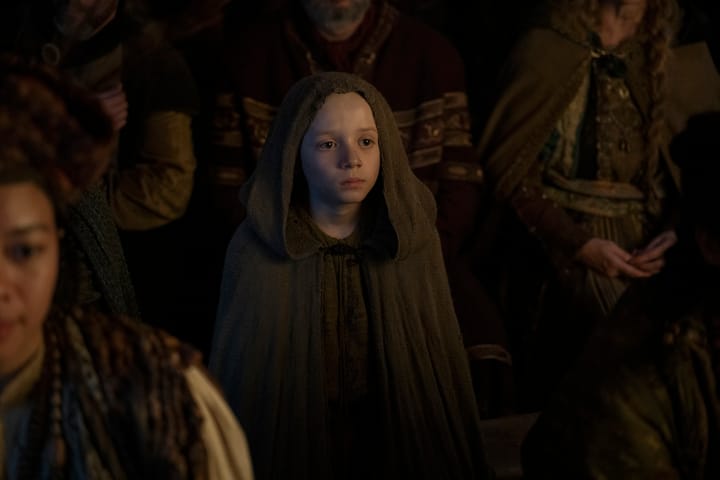
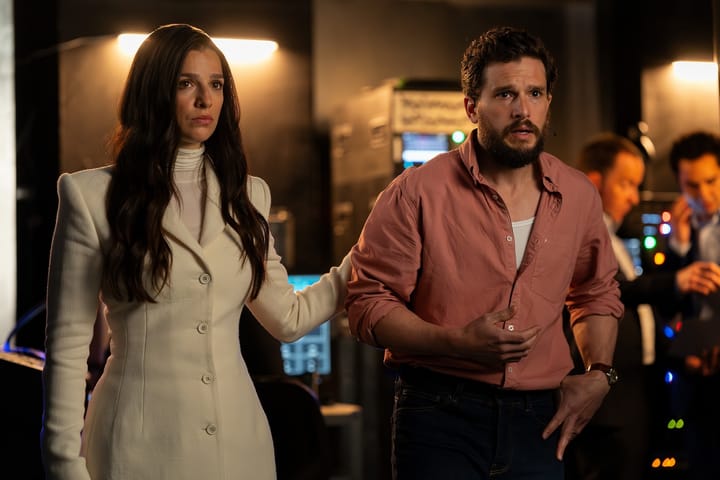
Comments ()